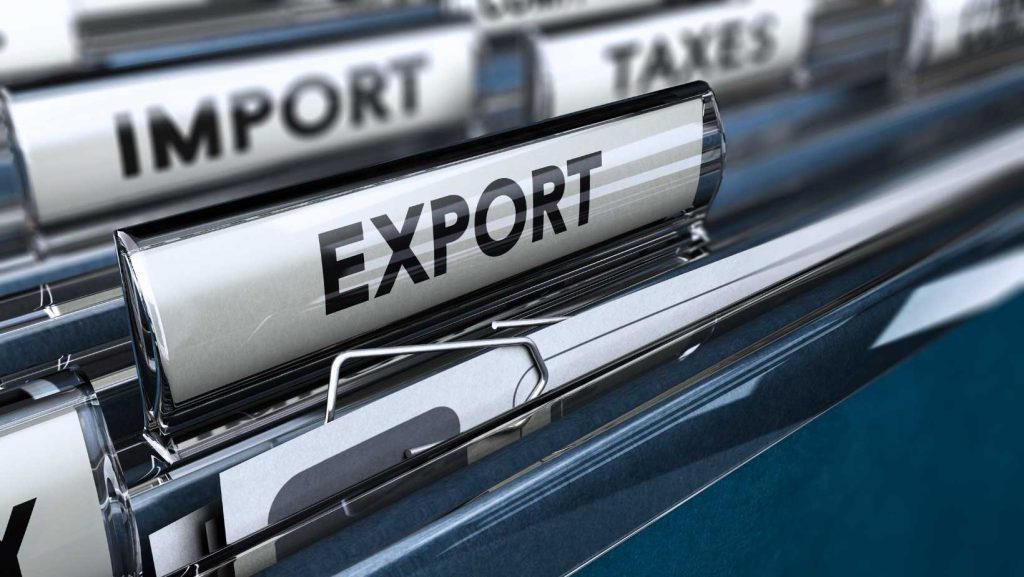
Hello there, future exporters and ambitious entrepreneurs ready to start on your export journey! PWIP is excited to be your trusty companion in this global trading. Let’s begin by knowing a thorough exporter registration process and the documents or certificates you require.
The procedure for export registration mainly involves the following steps:
Business Registration: Make sure your company is legally registered and has the necessary licenses and documents to engage in international exports. Basic documents like GST Number, PAN Number, and Bank Account.
Firstly register your company at the Registrar of Companies (ROC) which comes under the Ministry of Corporate Affairs and maintains the records of all the companies registered under them.
Obtain necessary certifications such as the Food Safety and Standards Authority of India (FSSAI) certificate, phytosanitary certificates, and other relevant certificates required by the importing country.
Obtain an Import Export Code (IEC): Obtain an IEC code (Business Identification Number) from the Directorate General of Foreign Trade (DGFT) in your country. This code is compulsory for export activities.
Issued by govt of India – Ministry of Commerce & Industry, details provided in the certificate are IE Code, PAN, First name, nature of concern, Issue date, registered address, name of the signatory, partner details, and branch details.
APEDA ( The Agricultural and Processed Food Products Export Development Authority) – The certification is a compulsory requirement for agricultural products exports. The Financial Assistance Scheme (FAS) is designed as an export promotion scheme, which is run by APEDA. The main aim of this scheme is to facilitate the export of agricultural products by assisting exporters.
Registration cum membership certificate consists of the following details
Product for which registered, IE Code, date of establishment, registration number, manufacturer exporter, merchant exporter, name of proprietor or director, date of registration, and valid date.

Goods and Service Tax (GST Certificate) – Mandatory registration is necessary for exports under GST. All taxes paid on the goods exported or on the inputs or input services used in the supply of such export goods or services shall be refunded. The principle of exporting only the cost of goods or services, not taxes, would be followed.
The following details are mentioned in GST registration certificate:
Legal name, Trade name if any, Additional trade names if any, the constitution of business, address of the principal place of business, date of liability, period of validity, Type of registration (Regular registration, composition scheme, casual, nonresident, and SEZ registration), Particulars of approving authority.
Permanent Account Number(PAN): It is compulsory to obtain a PAN-based Business Identification Number from the Customs before the filing of the shipping bill for clearance of export goods.
e- permanent account number is given by the government of India with the name and date of incorporation mentioned on the PAN card..
Incorporation (Pvt): Incorporation is applicable for private limited companies. Only after obtaining Incorporation private companies can apply for GST.
The certificate of Incorporation consists corporate identity number of the company, the permanent account number of the company, and the tax deduction and collection account number.
FSSAI: Exporters of Food products should obtain an FSSAI license and It is compulsory to follow guidelines from the Food Safety and Standards Authority of India (FSSAI) for exporting food products from India to other countries to prevent the export of less standard or unsafe Food goods from India.
FSSAI certificate consists of the following details name, registered office address, address of authorized premises, kind of business, dairy business details, category of licenses, place of issue, issued date, and valid up to.

TAN Certificate: Tax deduction and collection Account Number is a 10-digit alpha-numeric number given by the Income-tax Department. TAN is to be obtained by all persons who are responsible for taking off tax at source (TDS) or who need to collect tax at source (TCS).
Partnership Deed: To apply for the Import Export Code (IEC), FSSAI (Food Safety and Standards Authority of India, an APEDA partnership deed is required. This applies to only partnership companies and limited liability partnership companies.
partnership deed certificate is issued by India Non-Judicial which consists of certificate no, certificate issue date, account reference, unique doc reference, purchased by, description of the document, property description, consideration price, first party, second party, stamp duty, and stamp duty amount
Authorized Dealer Code (APCODE): Authorised dealer code is obtained from banks and it is used for transactions during the export procedure.
APCODE certificate is created on banker letterhead, in the name of the commissioner of sea customs, authorized dealer code number, our IFSC code number, swift code, and PAN number
Letter of Undertaking: The letter of undertaking details are segmented into two parts 1. Company details, 2. ARN Number (Acknowledgement Reference Number).ARN number is used for GST refunds and commercial invoices.
The following details are mentioned in the letter of undertaking – Application reference number, date of filing, time of filing, GST identification number, legal name, trade name, approval of center jurisdiction, and state jurisdiction.
LEI Legal Entity Identifier: A legal entity number is used to prove that transactions are legal and this is used for transactions above 50 Lakhs.
PQ Plant Quarantine: Plant quarantine is issued at the time of shipment and used for testing exporting goods.
Proof Of Address Of The Bill: You can submit either of the bills – The electricity bill, Telephone bill, Water bill, or Gas bill of the registered office as business address proof. The bill should be recent one’s, and it should not be older than two months during the submission of the proofs for the certificate of Incorporation
Remember that the exact exporting process may vary based on your country’s regulations and the specific requirements of your target export markets. It’s suggested to work with experienced exporting consultants or trading companies to navigate the process smoothly. (https://pwip.co/exporter-registration )
